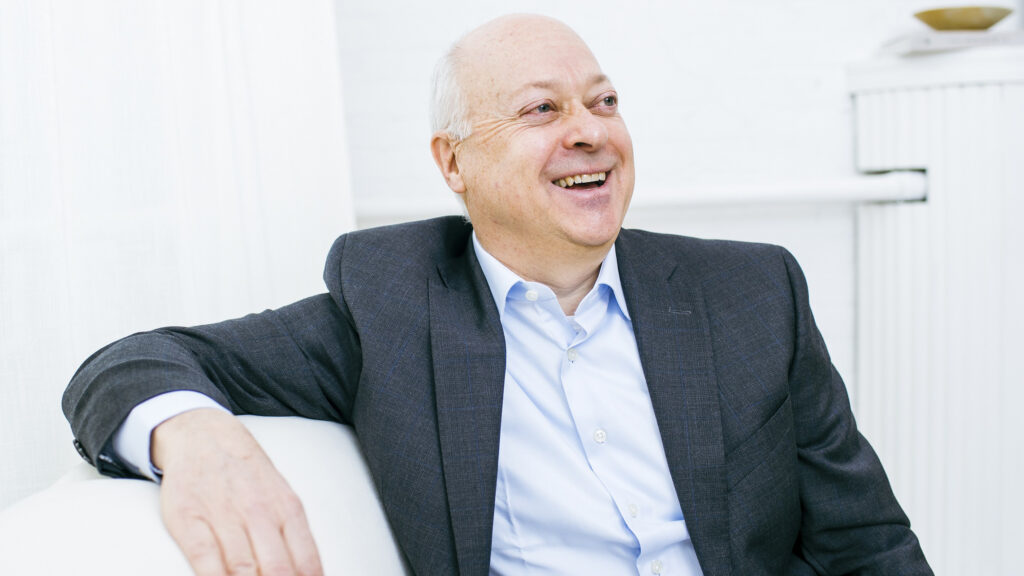Advisers struggling to manage shift from investment management to wealth planning

Many established wealth management firms are finding it difficult to help their clients shift from a pure asset management to a legacy-creation mindset.
With more than $70tn expected to be transferred between generations during the next two decades, wealth managers are realising the importance of implementing a family governance framework and wealth planning strategy for clients.
Increasing realisation that “softer skills” go hand in hand with pragmatic investment advice accompanies a change in perception of the meaning of wealth. This is fast broadening to include not just a stock of economic assets, but also a set of family values and expectations, linked to legacy.
These changes are proving a challenge to established wealth management firms, many of which are not appropriately equipped to help clients shift from a pure asset management to a legacy-creation mindset.
“The critical shift in mindset is a transition from the important, but technical elements of wealth management, to the softer elements of purpose and values,” says Sanah Gumede, managing executive for strategy and customer value management at Absa Relationship Banking in South Africa. “These will inform the legacy aspiration, generational family wealth strategy and objectives, as well as the appropriate structure.”
It is important to understand the family’s cultural context, objectives and interplay between key individual members, believes Ms Gumede, who will speak at the upcoming FT Wealth Management Summit.

“When I first started in investment management 25 years ago, nobody talked about financial planning,” confirms Duncan Stratford, managing director at Canaccord Genuity Wealth Management UK. “Now, everybody realises the benefits of investment managers and wealth planners working together, to produce the best outcome for clients.”
Retirement is the main concern for an older generation, which still holds the majority of wealth. “The biggest worry clients have is whether they have enough money for retirement,” says Mr Stratford, with later life costs now “extraordinarily high” and older people increasingly concerned they are giving away all their money to their children too early.
“The younger generation are finding houses incredibly expensive; mortgages are difficult to come by and salaries haven't gone up as much,” says Mr Strafford. The squeezed millennial cohorts are increasingly relying on the ‘Bank of Mum and Dad,’ which has benefited from years of house price growth, bull markets and low inflation.
Wealth managers lack soft skills
The cost of living crisis has accelerated the process of wealth transfer, notes Glenn Branney, UK regional head of wealth planning at Julius Baer International, based in Belfast, Northern Ireland. “We are starting to see a shift, where parents will not let their children fall into default,” he says. “But at the same time, they're being cautious not to give too much too soon.”
One of clients’ biggest fears is that wealth will not be passed on to future generations. This leads some to “leapfrog their children”, focusing instead on grandchildren, adds Mr Branney.

In these challenging conditions, it is critical for the ultra-rich to start the wealth and tax planning process as early as possible. Most wealth managers are keen to establish a relationship with their clients’ children as soon as they are in their teens, offering them financial education programmes. Family sessions to identify goals and shared values are also vital.
Investment and tax advisers, however, lack these soft skills to help families identify shared values and reach their goals, argues Tom McCullough, CEO of Northwood Family Office, a firm based in Toronto, Canada, serving wealthy families. Putting the investment portfolio “as the centrepiece” is the biggest mistake the investment community makes, he says.
This lack of skills produces all sorts of issues in succession planning. Inflexible trusts, which are “built to control trustees from the grave” and are more a burden than a joy for the beneficiaries, could be avoided through “robust” wealth planning, for instance.
“What can ensure resilience and success for families is to develop a strong set of shared family values, that can stand the test of time and shift as required,” explains Mr McCullough, who will also speak at the FT Summit
Not only it is vital that families involve the next generation in the life and plans of the family, including the investment portfolio, but financial training for children must include how to manage money and the emotions it triggers, how to choose advisers wisely and how to be a philanthropist.
“Often the family spends a lot of money preparing the money for the next generation, in investment management and tax planning,” he says. “But they spend very little money actually preparing the next generation for the money.”
This is a paradox, as the biggest concern wealthy parents have is to ensure their money “does not derail their children and do not make them into ‘trust fund babies’”.
One thing that parents should do is “not to parent with their wallet”, believes Mr McCullough.
“If your child runs into an issue, don't just pull out the credit card and solve the issue. Allow them to experience normal, natural consequences.”
Political challenges
“In the end, there are only two things you can do with money: spend it, or give it away,” argues Mr McCullough.
Once clients know how much capital – invested conservatively for instance – will fund their lifestyle for the rest of their years, they will have to decide how to allocate the extra money between children, future generations and charities.
It is not just the Covid-19 pandemic which has encouraged families to think through issues of longevity and succession. The focus on these topics has also grown because of ageing, as the bulk of wealth remains in the hands of baby boomers and their parents, especially in North America.
“We have more end-of-life conversations with clients now than we used to,” says Mr McCullough. “Most families don't know what their goals are. What we're trying to get them to think about is: what do you want as a family? What are your values? Which of those goals need to be supported financially?”
From these discussions it often emerges wealth holders are more focused on family wellbeing than finance, with advisers increasingly tasked with using a variety of tools, including money, to help families achieve their goal.
Challenges often arise from “insurmountable differences” across generations, particularly around political views in US-based families. “In the olden days, many people in the US maybe didn't want their kids to marry somebody of a different race, but now that is fine,” says Mr McCullough. “What they don't want today is that their kids marry a Democrat or Republican if they're the opposite. That is hard to navigate.”
Smart advisers need to help clients make conflicts productive and help them find common values, related to community, family, or philanthropic giving. “There is much more opportunity for commonality in philanthropy than there is in a subject like sustainable investing, which tends to have political edges to it as well,” he argues.
“Wealth managers also need to be able to manage tensions that arise when there is a disconnect between the lifestyle choices that a client, their family or successors want to make relative to a legacy which is driven by purpose and values, or where there are conflicting needs or expectations within the family,” says Absa’s Ms Gumede.
ESG and philanthropy
Most wealth managers, however, believe sustainable investing will play a key role in generational wealth planning. “The increased awareness of ESG investing, combined with the unprecedented global transfer of wealth, has led the younger generation to take a more proactive interest in how family wealth is managed,” says Ms Gumede. “This has encouraged greater discussion within wealthy families.”
Sustainable investing is a strand that can pulls two generations of families together, believes Julius Baer’s Mr Branney. “We're seeing a real focus on sustainability, on ESG goals and it's not necessarily just about performance,” he says. “It's about making sure they're doing the right thing with their money, so that values are transferable across generations.”
Julius Baer also identifies increased levels of activity and interest in philanthropy, potentially fuelled by the pandemic. “There are many clients who want to leave their mark on the world,” says Mr Branney, echoing the sentiments of American industrialist and philanthropist Andrew Carnegie. “Donors realise it is more difficult to give money away intelligently than to earn it in the first place,” leaving clients keen to speak to philanthropic experts able to help set up charitable foundations and give to favoured charities.
“Our objective is to create value beyond wealth, and help clients not just pass on wealth to their children, but think about values and legacy,” says Mr Branney.
Family bonding
When clients are owners of their family businesses, philanthropy and impact investing can actually improve the performance of the firm. It can also educate and engage family members, while creating opportunities for family bonding, believes Pierre Ramadier, global head of entrepreneurs and families coverage at BNP Paribas Wealth Management.
“Even if family members do not share the same goals or methods, engagement happens through the sharing and discussion of values and priorities,” he says, emphasising the importance of this client segment for the French bank.
Thirty-five per cent of family-owned businesses in Europe involve the next-generation in integrating sustainable practices into their activities, according to BNP Paribas research. Globally, family-owned businesses tend to involve the next generation early in the business, notably in marketing and social media campaigns (46 per cent) and development of new product lines (41 per cent).
These businesses face a growing number of challenges, he says, as the nuclear, national family model gives way to a more expansive, international or global family footprint, necessitating a more robust framework for family governance and succession planning. “Family governance helps foresee and respond to crises by encouraging more discipline, transparency and accountability for the issues that matter,” says Mr Ramadier.
Banks such as BNP Paribas are also stressing the need to nurture competent and committed successors to run the business. For these players and the advisers they employ, the expanding client segment of family-owned firms and entrepreneurs is already helping shape business models. How they respond to these trends will determine the success or failure of wealth managers into the next decade.
To register for the FT Live and PWM Global Wealth Management Summit, please click here





